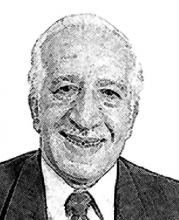You are here
More effort needed to defeat Daesh
Feb 06,2016 - Last updated at Feb 06,2016
A world authority on counterterrorism and psychological warfare wrote an article days ago on how to defeat Daesh ideologically.
It is Alberto Fernandez, who has served in the United States embassy in Amman as a public affairs councillor some years ago.
Fernandez refers to the Marrakesh Declaration and the Sawab Centre in the United Arab Emirates initiatives in mobilising Sunni intellectuals to join the social media networks campaign that Daesh members use to recruit more volunteers from the United States and Europe, at a person-to-person level.
But where to find those dedicated intellectuals whose sense of mission incentivises them to spend hours on eradicating misconceptions about Islam and Jihad?
The root causes for Chechens who joined Daesh are the same Petri’s dish for Arabs who are fighting in Mosul. It is the most common denominator among the new generation of Muslims: alienation, humiliation, deprivation, frustration and a sudden hope for a Utopian society.
The brainwashing techniques used by Abu Bakr Baghdadi succeeded to recruit thousands of young fighters in Paris and London.
But the recipe that Fernandez prescribes needs decision makers whose Islamic charisma can attract followers and provide respect for their fatwas. Unfortunately, such figures are marginalised.
On the other side, ground troops to fight Daesh are a top priority if a serious effort to eradicate this danger from the whole region is indeed exerted.
The Saudi government announced this week its willingness to send ground troops to do such a job, since the United States is not in a position to send any of its soldiers to fight in Syria and Iraq.
Russia is in the same position; it, like the US, adheres to air bombardment of Raqqa and Mosul, Daesh’s strongholds.
Morocco, the United Arab Emirates and some other regional countries might follow the Saudi initiative and volunteer some of their special forces to provide boots on the ground.
The combined military barrages of Moscow and Washington seem to have failed to defeat Daesh.
It is true that Baghdad had announced its rejection of Arab ground troops due to sectarian considerations, as announced by Ayattollah Ali Sistani from his spiritual capital Najaf.
The Iraqi government cannot force its army to start an offensive since the soldiers’ morale is too weak following so many defeats and beatings by Daesh.
Neither is the Syrian government expected to welcome Saudi fighters on its territory, since the Assad regime accuses Riyadh of attempts to topple it.
In conclusion, a more serious, convincing, effort is needed to defeat Daesh ideologically, as Fernandez recommends, and militarily as the Muslim world needs.














